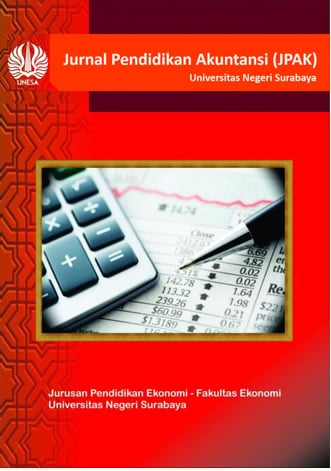Array
DOI:
https://doi.org/10.26740/jpak.v10n3.p332-337Keywords:
Profit sharing; disposable income; promotion; saving interests; islamic bankAbstract
This research was carried out with the aim of knowing the influence on Profit Sharing, Disposable income, and Promotion with Saving Interests in Students of the Accounting Education Department at Islamic Banks. This study uses quantitative research methods and the data in this study were collected through questionnaires. A total of 61 students in the 2018 Accounting Education Study Program, State University of Surabaya were used as the population and sample in this study. Saturated Sampling technique was used in this study. One of the non-parametric analytical tests of Kendall's Tau-b was used to analyze this research through the SPSS version 25 computer program. According to the analytical test that has been carried out, it can be stated that: (1) Profit Sharing has a significant effect on the Interest in Savings variable with a value of 0.048. (2) Disposable Income has a significant effect on Saving Interest with a value of 0.000. (3) Promotion has a significant effect on Saving Interest with a value of 0.000. So it can be conluded that the variable of Profit Sharing, Disposable Income, and Promotion affect the Student Saving Interest variable.
Downloads
Downloads
Published
How to Cite
Issue
Section
License
Authors who publish with this journal agree to the following terms:
- Authors retain copyright and grant the journal right of first publication with the work simultaneously licensed under a Creative Commons Attribution License that allows others to share the work with an acknowledgement of the work's authorship and initial publication in this journal.
- Authors are able to enter into separate, additional contractual arrangements for the non-exclusive distribution of the journal's published version of the work (e.g., post it to an institutional repository or publish it in a book), with an acknowledgement of its initial publication in this journal.
- Authors are permitted and encouraged to post their work online (e.g., in institutional repositories or on their website) prior to and during the submission process, as it can lead to productive exchanges, as well as earlier and greater citation of published work (See The Effect of Open Access).

Jurnal Pendidikan Akuntansi (JPAK) is licensed under a Creative Commons Attribution-NonCommercial 4.0 International License.
 Abstract views: 389
,
Abstract views: 389
, PDF Downloads: 477
PDF Downloads: 477



